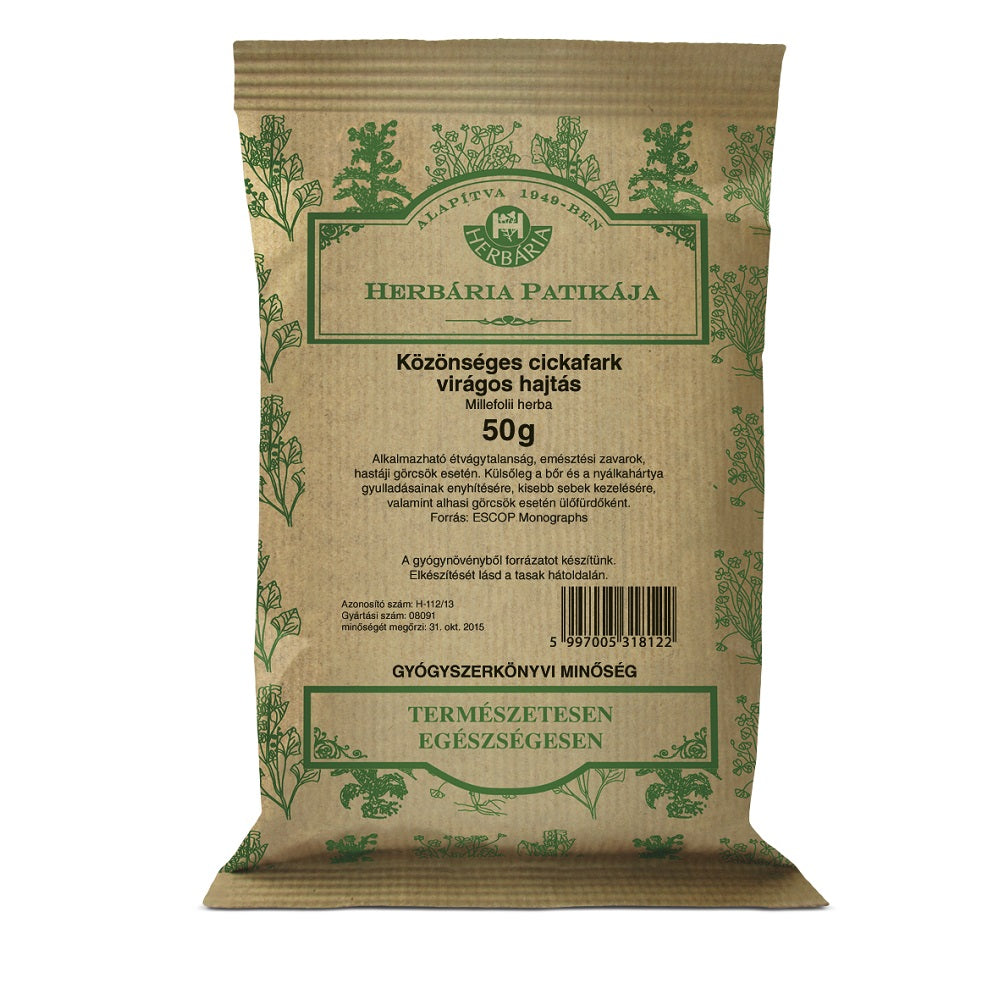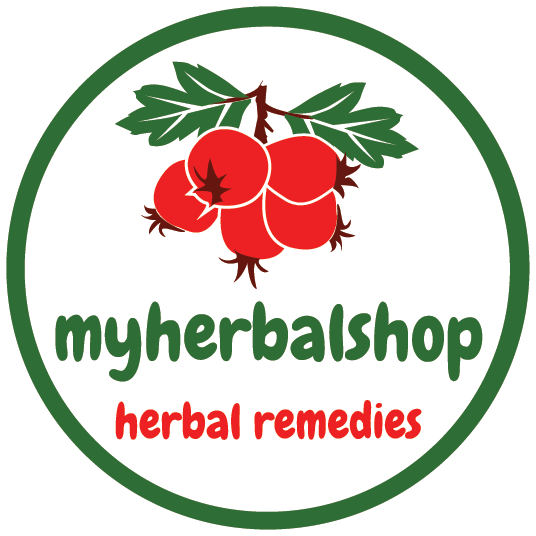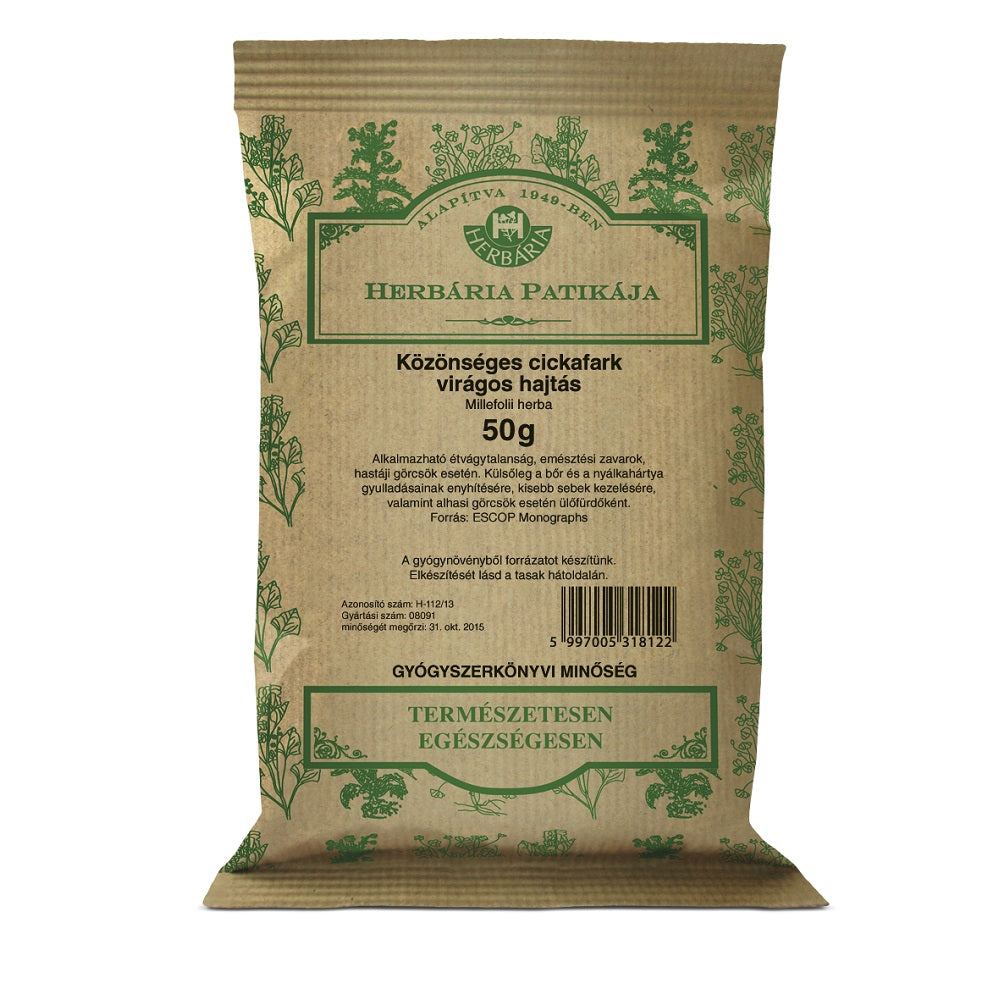Herbária
Herbaria Yarrow Loose Leaf Tea 50g
Herbaria Yarrow Loose Leaf Tea 50g
Couldn't load pickup availability
YARROW – Achillea Herba
Parts used: Flowerheads, non woody parts, seeds
The plant is harvested just after flowering from June to October.
Yarrow is usually dried for use as an infusion but it also can be used fresh. It is also available as a liquid extract, a tincture or as a powder.
Constituents
The flowers contain 0.2-0.5 per cent essential oil, whereas the leaves contain 0.02-0.07 per cent. The oil contains sesquiterpenes, namely azulene and lacotone achilleine, which have an anti-inflammatory action. Anti-inflammatory flavonoids are also present as well as tannins, alkaloids and bitter compounds.
Medical uses
As a result of its numerous active components, yarrow has many medicinal uses. Its antispasmodic, carminative (ability to relieve the build-up of trapped wind), its anti-inflammatory and anthelminthic (capacity to destroy intestinal worms) actions are mostly due to its essential oil.
The plant is commonly used for the relief of digestive disorders including stomach ailments, inflammation of the intestinal walls, constipation and flatulence.
Used externally, yarrow’s anti-inflammatory action relieves rheumatic pains and haemorrhoids. It is also used to treat mouth infections, conjunctivitis, eczema and other conditions including fevers.
Yarrow is diuretic, it lowers blood pressure and is also indicated for treating thrombotic diseases, and hypertension. In addition, it can be used to combat urinary tract infections.
The plant has traditionally been used to soothe uterine cramps during menstruation and childbirth. Taken regularly in small doses it can also help to regulate the menstrual cycle, particularly when menstruation is scant or infrequent.
It is used to reduce phlegm and treat conditions of the respiratory tract. Common yarrow can also cleanse greasy skin and is often found in cosmetic products.
Preparation and dosage:
For internal use
To treat digestive disorders.
Liquid extract: Take up to 2ml, 3 times a day.
Infusion: Put 1 teaspoon of dried plant into 1 cup of boiling water. Leave to infuse for 5 minutes and strain. Drink 3-4 cups a day before meals.
For external use
To treat uterine pains.
Sitz-bath: Put 100g of the dried plant into 20 litres of hot water.
IF SYMPTOMS PERSIST, CONSULT A DOCTOR
CAUTIONS:
-common yarrow may cause contact allergies
-it is not advisable to use it when pregnant or breastfeeding
-exposure to sunlight is not recommended, yarrow may act as a photosensitiser
-large doses may produce vertigo and headaches “Reader’s Digest: Nature’s Medicines”


